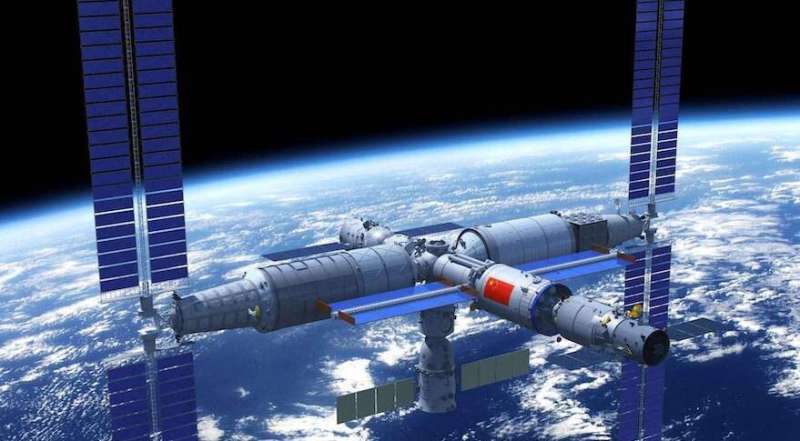Credit: China National Space Administration
The Chinese space agency is building a brand new space station, and they're going about it in a suitably impressive way: an ambitious schedule of 11 planned launches crammed into only two years. When it's done, the 66-ton space station will host crews of three astronauts for up to six months at a time, lasting for a planned 10 years before de-orbiting.
The new station, slated to open for spacey business in 2023, will feature three modules: a main living space and two modules designed to host experiments from collaborators around the world investigating everything from space technologies to zero-G biology.
If everything goes as planned, the first module should go up in the first quarter of 2022 onboard the heavy-lift Long March 5B rocket, which made a controversial debut recently when its main stage rocket fell back in pieces scattered across the eastern Atlantic (and bits of Africa) in a haphazard way shortly after launch. The remaining launches will place the experimental modules, as well as supplies and some folks to run the place.
Speaking of folks to run the place, the Chinese space agency announced plans to select their latest batch of astronauts this July. According to recent statements, the selection will for the first time include civilians with science and engineering backgrounds, not just military personnel from the People's Liberation Army Air Force.
In addition to the cool new space station, the Chinese are also planning to launch a cool new telescope, dubbed Xuntian. It will have the same size mirror as the Hubble Space Telescope, but be able to image a much wider field of view on the sky. The new telescope will share the same orbit as the space station (an altitude of 340-450 kilometers with an orbital inclination of 43 degrees), allowing the telescope to dock with the station for repairs and upgrades.
Provided by Universe Today
























